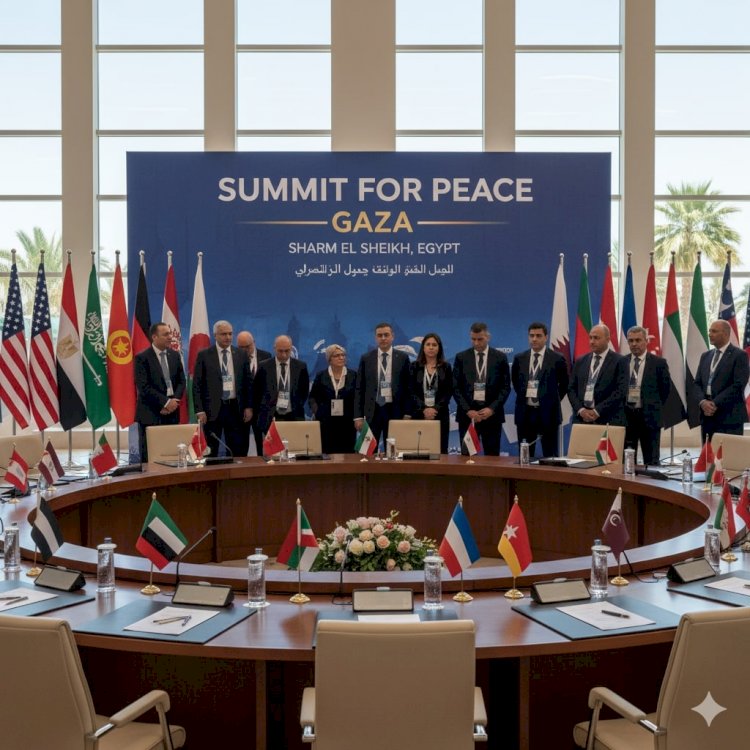Summit for Peace: World Leaders Battle Over the 'Day After' in Gaza

SHARM EL SHEIKH, EGYPT—In the wake of the emotional hostage-prisoner exchange, a crucial international summit in the Egyptian resort of Sharm El Sheikh is struggling to overcome deep-seated political divisions over the next phases of the Gaza peace deal. Co-chaired by U.S. President Donald Trump and Egyptian President Abdel Fattah El-Sisi, the "Summit for Peace" brings together over 20 nations, but the absence of high-level Israeli representation and the deliberate exclusion of Hamas underscore the fragility of the political road ahead.
The initial success of the ceasefire has given way to the thorny "Day After" questions: Who will govern a post-war Gaza, and who will fund the estimated $53 billion reconstruction effort?
President Trump, fresh from celebrating the hostages' return, insisted that the two-year war is "over" and called on the international community to focus on the next step: establishing a new, technocratic Palestinian governing committee vetted by Israel. However, this proposal faces immediate hurdles. Palestinian Authority President Mahmoud Abbas is advocating for a unified Palestinian administration, while key Arab states are pushing for clear international guarantees before committing to fund the massive rebuilding effort.
The core dispute revolves around security and governance. Israel remains firm in its rejection of any future role for Hamas and insists on the group's disarmament. Yet, Hamas has publicly rejected both the demand to surrender its weapons and the entry of a proposed multinational stabilization force—expected to be composed of troops from Arab and Muslim nations. Egyptian Foreign Minister Badr Abdelatty emphasized the necessity of continued U.S. engagement, including potential "deployment on the ground," to define and enforce the mandate of any peacekeeping force.
Meanwhile, world powers, including the United Kingdom, are pledging immediate humanitarian aid and offering to convene follow-up reconstruction conferences. This financial commitment is crucial, as the UN and aid agencies are ramping up efforts to alleviate severe shortages and famine risk in the devastated territory.
While the summit is likely to conclude with a joint statement affirming support for the ceasefire and reconstruction, analysts caution that the event is more a symbolic launching pad than a definitive resolution. With core security and political questions yet to be answered, the momentum created by the hostage exchange will require sustained, intense diplomatic pressure to prevent a dangerous relapse into conflict.

 content-team
content-team 


















